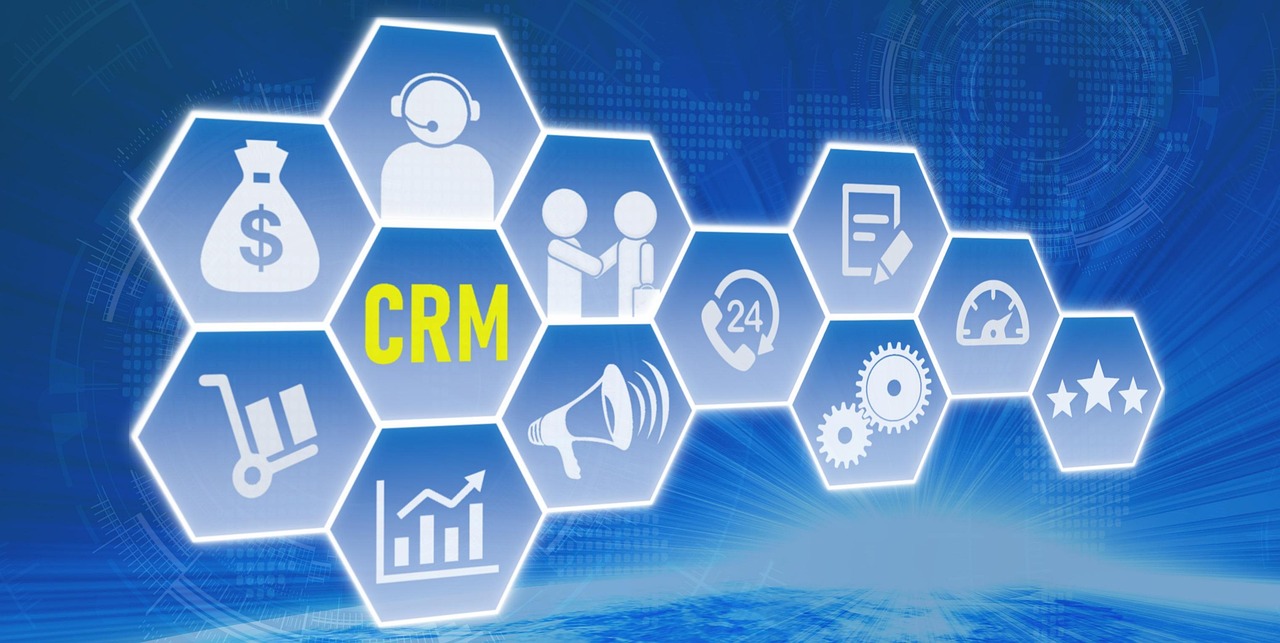
Top CRM Software and Systems in 2025
Understanding Customer Relationship Management (CRM)
Customer Relationship Management (CRM) systems are essential software tools designed to help businesses efficiently manage interactions with current and prospective customers. These powerful platforms enable companies to centralize prospect contact data, create detailed customer profiles, meticulously record client interactions with sales representatives, and ultimately cultivate stronger customer relationships.
By leveraging a robust CRM, managers gain clear visibility into every stage of the customer journey. The data collected and analyzed by these systems can generate invaluable reports, helping to pinpoint lucrative sales opportunities. Beyond core relationship management, many CRM systems integrate features for marketing automation, email campaign management, and a wide array of third-party integrations, further enhancing their utility.
With the market flooded with CRM solutions, identifying the ideal platform can be challenging. This article aims to simplify that search by reviewing some of the leading options available in 2025, guiding you toward the CRM software that can significantly boost your sales efforts.
Our Top CRM Software and Systems in 2025
Here’s a detailed look at some of the best CRM software and systems, each excelling in specific areas:
- HubSpot – Best CRM software overall
- Pipedrive – Best for salespeople
- monday sales CRM – Best for its customizability
- HoneyBook – Best for freelancers and solo entrepreneurs
- ClickUp – Best for its integrated CRM and project management
- Capsule – Best for users seeking a simple solution
- Keap – Best for its cloud-based platform
- PipelineDeals – Best for its reporting & analytics capabilities
- Click CRM – Best for Ecommerce companies
- QuickBooks -Best for readers
HubSpot: Best Overall and for Startups/Small Businesses
 HubSpot stands out as an exceptional CRM, especially for startups and small businesses, largely due to its robust free offering. This free CRM provides ample features for individuals and smaller companies to manage up to one million contacts and drive sales. As your business expands, HubSpot offers premium tiers with extensive functionalities and 24/7 customer support, allowing for seamless scalability.
HubSpot stands out as an exceptional CRM, especially for startups and small businesses, largely due to its robust free offering. This free CRM provides ample features for individuals and smaller companies to manage up to one million contacts and drive sales. As your business expands, HubSpot offers premium tiers with extensive functionalities and 24/7 customer support, allowing for seamless scalability.
For businesses on the go, HubSpot’s free CRM includes a mobile app that empowers sales teams to engage leads via mobile, conduct video calls, and communicate through email and integrated live chat. The app also features business card scanning for quick contact data acquisition, note-taking capabilities, and reminder settings. HubSpot excels in real-time sales activity tracking, presenting a comprehensive dashboard for visualizing the entire sales pipeline. It facilitates data compilation and generates detailed reports on team performance and sales activities. Users can personalize and send emails, make calls directly from the CRM, and receive alerts when leads open their emails.
Furthermore, HubSpot enables extensive automation, including email campaigns, to streamline operations. Its tools cover lead generation automation, contact management, ad management, and task management, complemented by over 1160 app integrations to maximize productivity and marketing efficiency. While its advanced features are locked behind premium versions, and these can be costly, HubSpot’s free offering provides substantial value.
Pipedrive: Best for Salespeople
Pipedrive is an award-winning CRM software, meticulously designed by salespeople for sales teams aiming for peak effectiveness. Its plans encompass comprehensive CRM and security features, sales management, email marketing, web visitor tracking, lead generation, automation, insights, and reports. This makes Pipedrive a cost-effective choice, particularly with potential savings on annual plans. It caters to startups, small and medium-sized businesses (SMBs), and enterprises, offering workflow automation to reduce repetitive tasks and enhance productivity.
Pipedrive boasts extensive customer relationship management features, a mobile app for on-the-go client service, and a marketplace with over 350 apps and integrations for streamlining operations, improving customer service, and boosting revenue. Its core philosophy is an activity-based selling approach, focusing on actions that directly lead to deals and sales. A 14-day free trial allows users to explore its features and plans without a credit card. While most plans have feature usage limits, these can be expanded by upgrading. Pipedrive provides comprehensive 24/7 customer support via phone, email, and live chat, along with FAQs, a blog, and other resources for new users.
Monday sales CRM: Best for Customizability
A product of monday.com’s renowned project management software, monday sales CRM offers a wealth of features for managing teams, contacts, tasks, and sales processes. It provides a limited “free-forever” version with two seats and up to 1000 contacts, and web forms for lead capture. Higher-tier plans have minimum seat requirements, which might mean paying for more than initially needed. A 14-day free trial is available, though beginners might find the software somewhat complex.
Key features include advanced account management, an unlimited contact database, and numerous app integrations. Communication is centralized and tracked, with automatic import and merging of duplicate customer data. Sales teams can monitor deals, progress reports, and sales forecasts, generate and score leads, and set up unlimited customizable sales pipelines and dashboards. The platform also allows for no-code sales process automation. It provides insights into team performance, tracks activities, and maintains call and meeting logs. Customer support is accessible 24/7 through its help center, which offers learning resources, community forums, and an online email form. However, direct live chat or an AI chatbot are not available.
HoneyBook: Best for Freelancers and Solo Entrepreneurs
HoneyBook positions itself as an all-in-one CRM solution for tracking leads, communicating with clients, and sharing documents. Its intuitive workflow facilitates client management from initial contact through invoicing and payments. While it offers some automation and basic integrations like email, Calendly, and Zoom, larger enterprises might find these options insufficient. Despite supporting unlimited team members with its subscription plan, HoneyBook is primarily suited for freelancers and small businesses.
HoneyBook provides a hands-on, free migration and setup service upon subscription, making it highly accessible for first-time CRM users. The platform is user-friendly, and its live chat customer support is knowledgeable and helpful. While phone support is absent, a comprehensive knowledge base and weekly live educational webinars ensure ample support resources. Its end-to-end pipeline system and intuitive workflow are its key strengths.
ClickUp: Best for Integrated CRM and Project Management
ClickUp is a versatile platform functioning as both a CRM and a comprehensive project management tool. It includes features beneficial for marketers and customer support teams, making it an excellent choice for aligning internal resources to attract prospects and convert them into paying customers.
ClickUp offers a completely free tier and provides features for both project management and marketing. Its Kanban editing is easy to use. However, it’s not a dedicated CRM, and the free tier has limited space. New users might find its interface overwhelming initially, and CRM features might require manual setup.
Capsule: Best for Users Seeking a Simple Solution
Capsule is a straightforward CRM with essential features for contact management, sales and marketing, and basic project management. Its limited free version allows up to 250 contacts, 50MB of file storage per account, and over 1,000 Zapier integrations and automations. Professional, Teams, and Enterprise plans offer more extensive features, including up to 200,000 contacts and up to 40GB of file storage.
Capsule’s sales features are somewhat limited, and workflow automation is still in Beta. Users can customize sales pipelines, track potential deals, and assign tasks to sales reps. It also provides insights into sales conversion rates, pipeline milestones, and reports on lost opportunities and pipeline growth. Team collaboration is facilitated through shared mailboxes, and a mobile app for iOS and Android allows for remote work. Customer support is available via a video library, an online query form, and blog posts, though response times may vary. Comprehensive customer training and implementation support are primarily reserved for Enterprise plan users.
Keap: Best for its Cloud-Based Platform and Sales & Marketing Automation
Keap is an all-in-one sales and marketing CRM, providing features crucial for business growth. It automates lead capture, tracking, and contact organization, optimizing the customer experience through intelligent automation. Users can swiftly call, text, or email customers directly from their records, view data, follow up, and convert prospects into buyers. Free contact migration by experts simplifies the onboarding process.
Keap supports app integrations and enables sending and receiving payments directly through the CRM. Its pricing is on the higher side, with costs increasing per user and for every 1,500 new contacts. Keap’s sales pipeline tracks leads throughout the sales funnel, and users can create multiple landing pages for lead conversion. It offers valuable insights and analytics, with customizable dashboards for consolidated reporting. Customer support includes US-based phone support and 24/7 chat support (often a chatbot initially). Additional resources include blogs, podcasts, and guides.
PipelineDeals: Best for Reporting & Analytics Capabilities
PipelineDeals presents a compelling case as one of the best CRMs for small businesses. It offers a comprehensive solution with practical tools for boosting productivity and success, from daily reports to individual deal update pages, real-time status updates, and robust analytics.
The Pipeline homepage provides a clear overview of activities, allowing users to monitor high-profile and at-risk deals. Clients can view performance metrics and generate customized comparison charts to assess deal quality and team performance. Real-time notifications prioritize urgent tasks, while automated task assignments, lead updates, and “Next Step” suggestions maximize productivity. PipelineDeals offers competitive and flexible pricing across three tiered packages: Start, Develop, and Grow, catering to varying business needs. While integrations are somewhat limited and the basic plan is less feature-rich, its focus on practical tools and intuitive design makes it a strong contender.
Click CRM: Best for E-commerce Companies
Click CRM is an AI-assisted CRM that excels in scheduling and task prioritization while offering a comprehensive overview of sales funnels and leads. It supports selling products on your domain or marketplace and provides product fulfillment automation and execution of business strategies. Relatively user-friendly and flexible for diverse business demands and workflows, Click CRM is ideal for small and growing e-commerce businesses aiming to enhance productivity and time management, and coordinate teams and tasks with a simple system.
Its AI assistance and productivity-enhancing features are notable. However, it is primarily geared towards smaller businesses and can be somewhat rudimentary compared to more comprehensive CRMs. It does not offer a free trial.
Understanding Different Types of CRM Software
The CRM market offers various specialized solutions. The most common types include:
- Analytical CRM: These systems concentrate on analyzing customer data to glean insights and identify customer behavioral trends. Salesforce CRM is a prime example of an analytical CRM.
- Collaborative CRM: This type focuses on connecting sales representatives with other departments, granting them access to real-time customer data to inform their decision-making. Monday.com exemplifies an all-in-one solution that integrates sales, CRM, and project management tools.
- Operational CRM: These CRMs help streamline customer relationships and the buyer’s journey, often providing automation for marketing campaigns and other features. HubSpot is an industry-specific example of an operational CRM.
CRM Software Costs: What to Expect
On average, CRM software typically starts around $10 per user per month, with prices potentially escalating to $30+ per user per month for more advanced features. Several factors influence this cost:
- Onboarding Fees: Some CRM vendors mandate an onboarding fee.
- Contact List Limits: Charges may apply to remove contact list limitations.
- Customer Support: Premium customer support might come at an additional cost.
- Additional Features: Unlocking advanced functionalities often requires higher-tier plans.
- Implementation Costs: These may be calculated separately, increasing the overall package price.
- Minimum User Requirements: If the minimum user requirement exceeds your current employee count, you might pay for more seats than needed.
You can often reduce CRM expenses by opting for annual payments, which typically offer a lower per-month and per-user cost. Additionally, keeping an eye out for discounts, special offers, or choosing a customized CRM package with only the necessary tools can help manage costs.
Tips for Choosing the Right CRM Software

Selecting the perfect CRM for your business can feel overwhelming, given the multitude of options. Here are some practical tips to simplify your decision:
Define Your Goals and Needs
Before diving into options, clarify what your business aims to achieve. Do you need to funnel more prospects, automate your marketing efforts, or improve customer retention? Consider whether your organization requires scalable software to grow with the company or a solution suited for a small local business with no immediate expansion plans.
List Required Features and Technologies
Review your specific business needs to identify the CRM software with the most crucial features and technologies. Create a prioritized list of “must-have” features versus “nice-to-have” ones. Online reviews and referrals can also provide valuable insights.
Consider Departmental Usage
Different CRM software offers features that cater more effectively to specific departments, such as sales, marketing, or project management. Ensure your chosen software provides tools relevant to the departments that will be actively using it.
Evaluate Third-Party Integrations
Third-party integrations significantly enhance CRM systems by adding extra features and management tools. Assess which applications would be most beneficial for your business’s efficiency and a seamless experience. Prioritize integrations with tools you already use.
Factor in Cost and Integrations
CRM software varies widely in price and feature sets. Once you’ve defined your business needs, determine if your budget aligns with the desired features. If not, consider a customized or more streamlined option.
Prioritize Customer Support
A CRM system breakdown can lead to lost customers and revenue. Therefore, prompt and effective customer support is crucial. Look for providers offering adequate training, a comprehensive knowledge base, live chat, and 24/7 customer support.
Essential Features to Look for in a CRM Solution
The best CRM software should possess the following key features:
- Customer and Lead Management: Fundamental tools for storing customer details, contact data, purchase history, and interactions with sales reps. This includes searchable databases for quick access to information and functionalities to identify, qualify, and guide prospects through the buyer’s journey.
- Third-Party Integrations: The ability to seamlessly connect with other essential business tools like email platforms, project management software, Point-Of-Sale (POS) systems, and social media channels to enhance efficiency.
- Automation: Features that automate workflows and streamline operations, such as marketing automation, automated data collection and analysis, and lead follow-up through email campaigns, simplifying the customer’s journey through the sales funnel.
- Sales Management: Tools enabling sales teams to view customer profiles, update details, track interactions, and convert leads into customers. This includes functionalities for sales forecasting and tracking calls and time spent on prospects.
- Analytics: Capabilities for automatically collecting customer data and tracking sales activity to provide valuable reports and insights. This helps in identifying weaknesses, opportunities, forecasting revenues, and creating customizable dashboards for clear visualization of data.
Our CRM Software Rating Methodology
Our selection and rating of the best CRM tools involved an independent review process for each software. We evaluated them based on several key criteria:
- Pricing: Assessing whether the features offered justify the cost.
- Ease of Use: Determining if the software is intuitive for both beginners and advanced users.
- Customization: Evaluating the extent to which the software can be tailored to user preferences.
- Features: Examining the breadth of options and the availability of third-party integration capabilities.
- Implementation: Assessing the ease of understanding and applying the software.
- Customer Support: Reviewing the comprehensiveness of vendor support, including live chat and other training resources.
- Free Trial: Checking for the availability of a free trial to test the product.
Why Your Business Needs CRM Software
Regardless of its size, every business benefits immensely from CRM software to manage its most valuable asset: its customers. Here are some key advantages of implementing a CRM system:
Improved Customer Relationships
CRM software centralizes customer contacts and information, facilitating personalized interactions and customized solutions. These efforts foster brand loyalty and significantly enhance customer retention. Customer service also improves through insights and feedback on what is and isn’t working.
Increased Sales and Revenues
CRM systems boost sales by automating customer data collection, streamlining responses, easily capturing lead details, and guiding prospects through the sales funnel. Sales representatives can also collaborate with other departments to gather more customer information, helping them close more deals. The system also records customer orders and purchases for targeted marketing efforts.
Advanced Reporting
Most CRM software analyzes collected data to provide insightful reports on your business’s health. These reports simplify the visualization of company operations, highlighting weak points and opportunities for increased revenue.
Manual and Automated Marketing Tools
Marketing teams benefit from CRM software’s integrated tools for planning and executing marketing and email campaigns. Automation capabilities further enhance these campaigns, working tirelessly to generate leads and guide them through the sales funnel. Sales data insights and customer data reviews contribute to higher conversion rates.
Streamlining Operations
CRM software reduces operational costs by seamlessly performing repetitive tasks, freeing employees to focus on more critical duties. Mobile solutions enhance mobility, enabling companies to serve customers from anywhere. Ultimately, CRM systems contribute to a more agile and digitally enhanced company.
Integrating CRM with Existing Systems
The most effective way to integrate CRM with your existing systems is through Application Programming Interfaces (APIs). APIs act as a bridge, allowing two different software programs to connect and exchange information. Many CRM software providers, like Pipedrive, offer a marketplace where you can access APIs for various integrations, including email, communication and messaging, video calling, accounting, and lead generation.
Conclusion
The vast array of CRM options can make selection challenging. This review highlights several top choices, each with unique selling points, with HubSpot and Pipedrive standing out for their comprehensive offerings and user-friendliness. By carefully considering your business’s specific needs, leveraging free trials, and conducting thorough research, you can confidently select a CRM solution that seamlessly integrates with and elevates your company’s operations.




